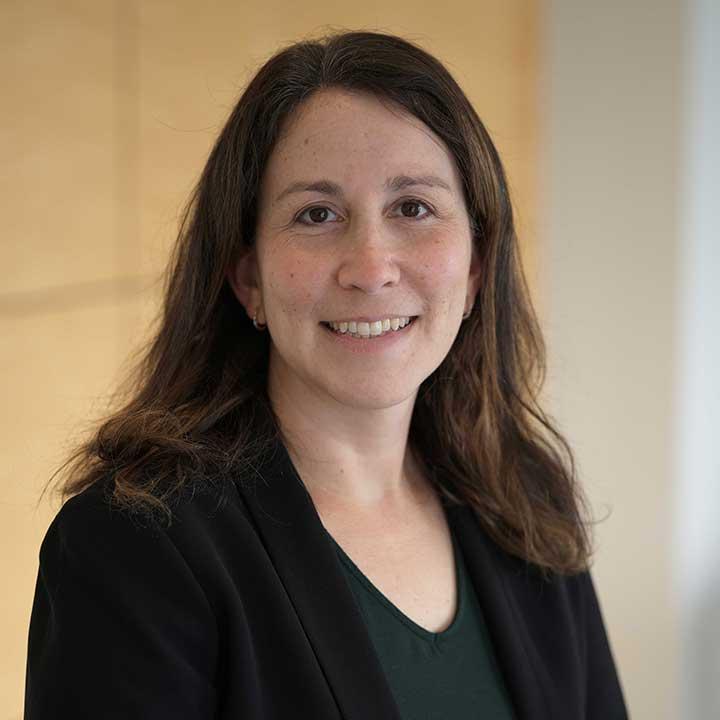The Elisabeth Haub School of Law offers two options for its Advanced Certificate in Health Law and Policy. For students enrolled in our JD program, the Advanced Certificate in Health Law and Policy is awarded upon graduation to those who earn 15 credits in qualifying health law and policy courses.
In addition to our traditional Advanced Certificate, we also offer an Online Advanced Certificate in Health Law and Policy for both students with a JD and those without a JD who looking for a flexible option to advance their careers:
Learn more about the Online Advanced Certificate
Advanced Certificate in Health Law and Policy
Pace’s Advanced Certificate in Health Law and Policy prepares students for careers in a variety of fields, including health care, bio-tech, public health, and food and environmental health. Particularly near the Law School’s campus in Westchester, careers related to the health care and bio-tech industries are on the rise. These jobs sit at the intersection of science, technology and the law.
Skilled lawyers are needed to understand the implications of new regulations, advise health-related corporations and organizations on transactional and compliance matters, and influence policy. The Elisabeth Haub School of Law at Pace University is uniquely suited to provide graduates with the skills they will need to compete in this new marketplace. Our program also draws together public health with our established, number one ranked, Environmental Law program and our new and growing Food Law program. These areas of law draw together cutting edge understanding of community health with critical issues of health equity and justice.
Course Overview
The Advanced Certificate in Health Law and Policy is awarded to JD students upon their graduation from the Elisabeth Haub School of Law at Pace University.
- Virtual Information Session Recording
- Advanced Certificate in Health Law and Policy Overview PowerPoint (PDF)
To earn the Certificate, students must earn 15 credits, with the following course requirements:
-
To attain an Advanced Certificate in Health Law and Policy, credits must include:
- Health Law in America LAW 867 (4 CR)
- Bioethics and Medical Malpractice LAW 868 (3 CR)
- Public Health Law LAW 693 (3 CR) and
- Healthcare Lawyering Skills 867A (2 CR)
-
The remaining credits may be satisfied from the following list of electives:
- Accounting for Lawyers LAW 673
- Agriculture Law and the Environment LAW 920
- Cannabis Law: Practice & Policy LAW 998
- Constitutional Law Seminar: End of Life Issues LAW 648J
- Constitutional Law Seminar: Reproductive Rights LAW 648K
- Elder Law LAW 741
- Environmental Law Seminar: Health and the Environment LAW 797Z
- Environmental Litigation and Toxic Torts LAW 840
- Clinic - Equal Justice America Disability Rights LAW 839A/839B
- Externship: Environmental LAW 821
- Externship: Legal Services Law 829
- Food Systems & the Environment Law LAW 806
- Guided Research LAW 723 or Directed Research LAW 994 (Health Law topic)
- Health Law & Policy Seminar: Healthcare Compliance LAW 819
- Insurance Law LAW 794
- Law and Education LAW 725
- Legislative and Regulatory Process LAW 914
- Mental Disability Law LAW 848
- Nonprofit Organizations LAW 735
- Privacy and Information Law LAW 705
- Skills Workshop: Law[yering] & Science LAW 684GG
Featured Faculty
Qualification Requirements
Students must submit an application (PDF) for the Advanced Certificate in Health Law & Policy to the Registrar’s Office during the semester prior to their graduation.
Related Programs and Resources
-
Protection of the public health is a core feature of most environmental law. It is the central premise of hallmark legislation to protect air and water quality and is a driving force behind a suite of laws that seek to protect the public from toxic exposures. Environmental law courses thus invite students to dive into and understand key public health questions including scientific questions about how to assess risk and normative questions about how protective the law should be and of whom. In addition, public health is one of several main themes of Pace’s food law curriculum, which focuses students on the critical role of food in community health, both because of the significance of diet-related disease as a public health challenge and because of the public health implications of modern food production practices.
The following Environmental Law program courses relate to environmental health:
- Environmental Justice Seminar LAW 728
- Clinic - Environmental Litigation LAW 767A/767B
- Environmental Law Survey LAW 856
- Climate Adaptation and the Law LAW 913D
- Food Systems & the Environment Law LAW 806
- Access to Justice Seminar LAW 995
- Agriculture Law and the Environment LAW 920
Environmental Litigation Clinic advocacy side intersects with environmental health. Each case that the Clinic works on relates to reducing pollution (enforcement) or forcing agencies to take a closer look at the environmental impacts, including health impacts, from a project (SEQR/NEPA).
The Environmental Law Survey LAW 856 course intersects directly with issues relating to environmental health. Core statutes studied in the class (TSCA, CAA, CWA) index the requirements of regulation to human and ecological health impacts; the National Environmental Policy Act compels the consideration of environmental impacts, including health, in the context of decision making.
Prof. Kuh’s Climate Adaptation and the Law LAW 913D course provides the opportunity for students to research and write on one of the many areas where climate change intersects with environmental health. The content is centered on strategies for achieving mitigation (more centrally, litigation and policy).
Prof. Pollans’ course in Food Systems & the Environment Law LAW 806 identifies the human health costs of food production, including those related to food consumption, food production, and labor in the food system. It evaluates a range of legal tools that seek, to varying degrees of success, to protect public health at every stage along the food supply chain. Agriculture Law and the Environment LAW 920 focuses on the environmental footprint of food production, exploring, among other things, the legal tools that seek to reduce the public health impacts of this footprint.
-
Land Use, Human Health, and Equity Project:
The Land Use Law Center has launched a Land Use, Human Health, and Equity Project, which will make accessible effective land use tools for strengthening public health and environmental protections in urban communities in response to the pandemic. These strategies can contribute to communities’ healthy and resilient post-pandemic futures while also reinvigorating cities’ climate change management capabilities. Through a team of two dozen student researchers led by Professor John R. Nolon, this project addresses climate change and COVID-19 by discovering local solutions. More information on this project can be found on our GreenLaw blog.
Additionally, as part of the Elisabeth Haub School of Law and Francis King Carey School of Law Weekly Environmental Law Colloquium series, Professor Nolon spoke recently about this project in his presentation on “Safe Buildings and Neighborhoods -- Balancing Property Rights and Government Regulation in Time of Emergencies.” View Professor Nolon’s presentation.
Read about the Land Use Law Center's Land Use, Human Health, and Equity Project
Watch Prof. John Nolon's presentation on “Safe Buildings and Neighborhoods- Balancing Property Rights and Government Regulation in Time of Emergencies”.
The Food Law Initiative's COVID-19 Legal Support Project:
The COVID-19 pandemic continues to test our food systems in many ways and our Food Law Initiative wants to ensure that we are available during these difficult times to support the legal needs of New York State’s farmers and food, beverage, and agricultural businesses. In response to this unprecedented situation, our Pace-NRDC Food Law Initiative launched the COVID-19 Legal Support Project to provide pro bono legal services by the Food and Farm Business Law Clinic and by attorneys at Shearman & Sterling LLP to new and existing clients affected by this crisis who cannot afford market-rate legal services. See the Food and Beverage Law Clinic for more information.
Health Law & Policy Seminar on Health Equity:
Prof. Barbara Atwell offers a new Health Law & Policy Seminar on Health Equity.
This class will explore the unique challenges that people of color, immigrants, members of the LGBTQ community, the disabled, domestic violence survivors, those suffering from mental health challenges, the poor, the disabled, and others are confronted with when they interface with our health care system. The class will address legal institutional structures that need to be reformed or dismantled in order to achieve health equity for all. Learn more about this course Health Law & Policy Seminar: Health Equity LAW 819A.
Students address COVID-19 issues in research:
The Advanced Certificate is particularly topical in these times, and we anticipate only growth in the need for healthcare lawyers. Haub students are already at work addressing COVID-19 issues. Haub Law students, Morgan Dowd, Marissa Cohen, and Matthew Pappalardo provided substantial assistance to the NYS Bar Association’s Health Law Section, in particular to the Task Force which was created to address legal and ethical issues raised by COVID-19.
Mandating the COVID-19 Vaccine: A Legal Analysis Article:
Morgan Dowd’s ‘20 article titled Mandating the COVID-19 Vaccine: A Legal Analysis was published in the Health Law Journal, a publication by the Health Law Section of the New York State Bar Association.
Chernobyl: Bridging the Gap Between International Nuclear Law and Public Health Article:
Current law student, Melissa Montoni’s article Chernobyl: Bridging the Gap Between International Nuclear Law and Public Health was published in the Health Law Journal, a publication by the Health Law Section of the New York State Bar Association.
Complex Regulations Push Employers Toward Voluntary Vaccination Programs, Not Mandates Article:
By Lauren Hammer Breslow, JD, MPH, Health Law and Policy Program Advisor
As COVID-19 vaccines become increasingly available, employers have been thrust into the spotlight on the public health question of whether or not to mandate vaccination for employees.
Despite strong evidence that mandatory vaccines best serve public health, a rubric of laws making mandatory programs complicated to deploy is leading many employers to favor vaccine encouragement policies. Read: Complex Regulations Push Employers Toward Voluntary Vaccination Programs, Not Mandates.
Brittney Poolaw and the Long Tradition of State-Sponsored Control of Women and Their Fertility
By Adjunct Professor Lauren Hammer Breslow, JD, MPH, Health Law and Policy Program Advisor
A young Native American woman from Oklahoma miscarried at 15-17 weeks. She shared with the doctors caring for her during her miscarriage that she had used illegal drugs. Her local DA chose to prosecute her for killing her fetus, even though abortion is legal in Oklahoma through 20 weeks. The DA's prosecution of Ms. Poolaw reflects a long history of government action to control women's fertility, a reminder that we must protect women's fertility and their choices about their fertility from over-zealous and terribly misguided interventions. Read: Brittney Poolaw and the Long Tradition of State-Sponsored Control of Women and Their Fertility
Contact
For more information regarding this advanced certificate, please contact Professor Lauren Roth.



